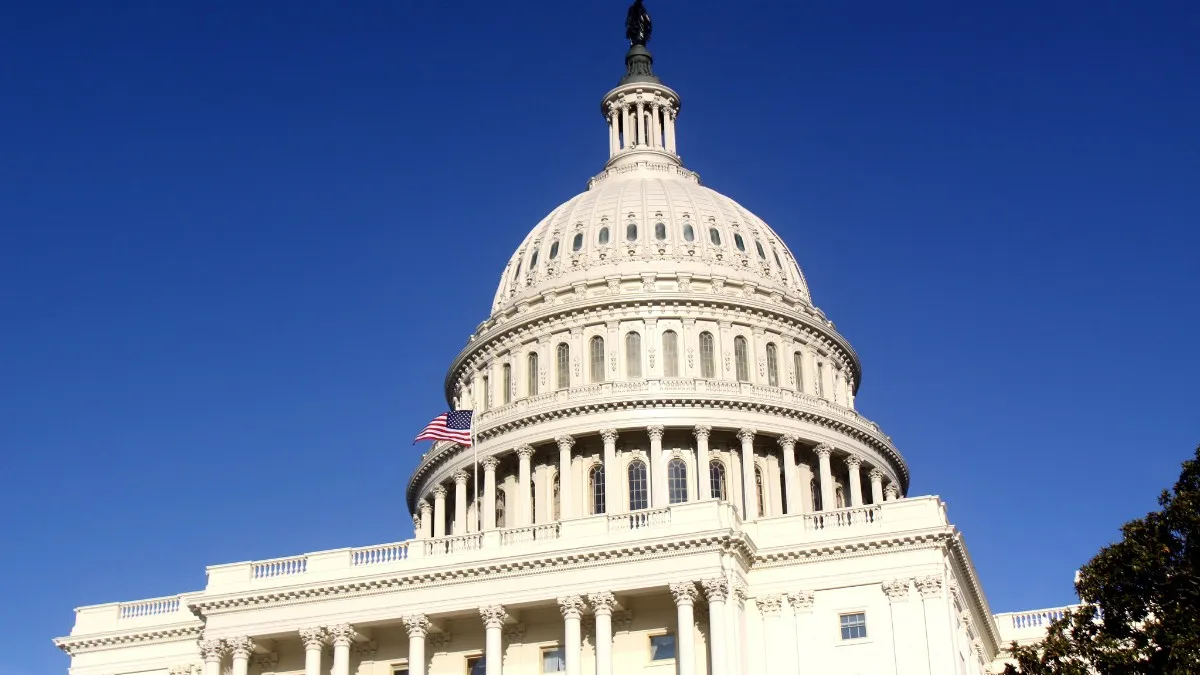Dive Brief:
- A novel coronavirus relief bill introduced by House democrats May 12 would require that employers provide paid sick and emergency Family and Medical Leave Act (FMLA) leave to workers regardless of company size.
- It also would temporarily suspend minimum hour eligibility requirements and reduce tenure requirements for nonemergency FMLA "to ensure high unemployment and furloughs do not leave workers unable to qualify for non-emergency FMLA benefits in the near future," according to a House Committee on Education and Labor fact sheet.
- The leave would be available to those who need time off because of school and daycare closures or because they or a family member has COVID-19, among other circumstances. Eligible workers would be entitled to two benefits: (1) two weeks of job-protected, emergency paid sick leave at full pay (up to $511 per day); and (2) 12 weeks of job-protected, emergency paid FMLA leave at two-thirds of their regular pay (up to $200 a day). Employers would be responsible for funding that leave, with some tax credits available.
Dive Insight:
Federal legislation enacted in March — the Families First Coronavirus Response Act (FFCRA) — mandated certain paid leave for employees of businesses with fewer than 500 employees. It expanded the Family and Medical Leave Act to provide paid leave for employees caring for children because of a school or daycare closure and implemented paid sick leave.
Democrats and employee advocates, however, voiced concerns that the FFCRA mandate didn't include leave for workers at large companies and those in certain essential industries. The latest bill, the Health and Economic Recovery Omnibus Emergency Solutions Act (HEROES Act), aims to address those concerns, granting paid leave to more employees, allowing for leave for additional exigencies and extending that mandate through the end of 2021.
If enacted, the law would include other items, including funding for some employers to pay essential workers $13 an hour through the end of the public health emergency. It also would require the Occupational Safety and Health Administration to issue infection control standards, including an anti-retaliation provision for workers reporting violations, according to a House Committee on Appropriations document.
The bill's potential for success, however, remains to be seen. While the House is expected to act on the bill as early as May 15, the Washington Post reported that Senate Major Leader Mitch McConnell, R-Ky., said there is no urgency. "The Senate will wait until after Memorial Day to consider options," the paper reported.













